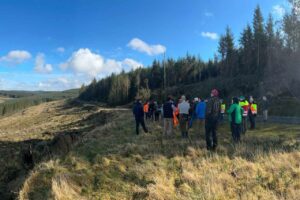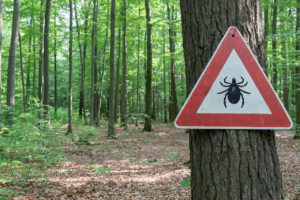EU Referendum: The Impact on Forestry and Arboriculture
 Little has so far been said about the potential impact of a decision to leave the EU on forestry and arboriculture. Therefore, in the run-up to the June referendum, the Institute will be posting a series of blogs that examine a range of implications of a yes/no result. It is hoped that these will not only provide food for thought but also encourage debate amongst ICF members. ICF President David Henderson-Howat FICFor provides an introduction.
Little has so far been said about the potential impact of a decision to leave the EU on forestry and arboriculture. Therefore, in the run-up to the June referendum, the Institute will be posting a series of blogs that examine a range of implications of a yes/no result. It is hoped that these will not only provide food for thought but also encourage debate amongst ICF members. ICF President David Henderson-Howat FICFor provides an introduction.
As there is no EU-wide “common forestry policy”, countries within the UK can in theory still determine their own forest policies. However we all know that in practice EU policies have a huge impact on forestry.
For example, funding from the Common Agriculture Policy (CAP) helps to pay for woodland grants. Meanwhile, the mainstream agricultural elements of the CAP have a profound impact on farm profitability and land prices. Although CAP support would be stopped if the UK leaves the EU, advocates of Brexit argue that some of the UK’s savings on the costs of EU membership could be used to maintain the payments.
European environmental legislation, such as the Habitats, Birds and Environmental Impact Assessment Directives, also have a major influence on forestry practice in the UK. But, even if these EU Directives no longer applied, it seems likely that conservation interests within the UK would fight to prevent any radical changes of approach. In any case, the UK would remain committed to international agreements, such as conventions on biodiversity and climate change. Similarly, the UK’s plant health controls would be freed from the constraints of the EU single market, but would still be subject to international rules, such as the World Trade Organisation’s phytosanitary measures.
More fundamental, perhaps, would be the impact of Brexit on trading relationships, exchange rates and the profitability of the industry. Would there, for instance, be a boom as exchange rates fell and imported timber became less competitive; or would a general reduction in GDP lead to lower demand for forest products and other tree-related services?
The forthcoming blogs will examine all these issues in greater detail. We hope these prove interesting and we greatly look forward to hearing your views on these – and other – key issues that are likely to be affected by the outcome of the referendum.
For further discussion on the EU referendum, ICF members are encouraged to use the ICF Members’ LinkedIn group.





